Blogs
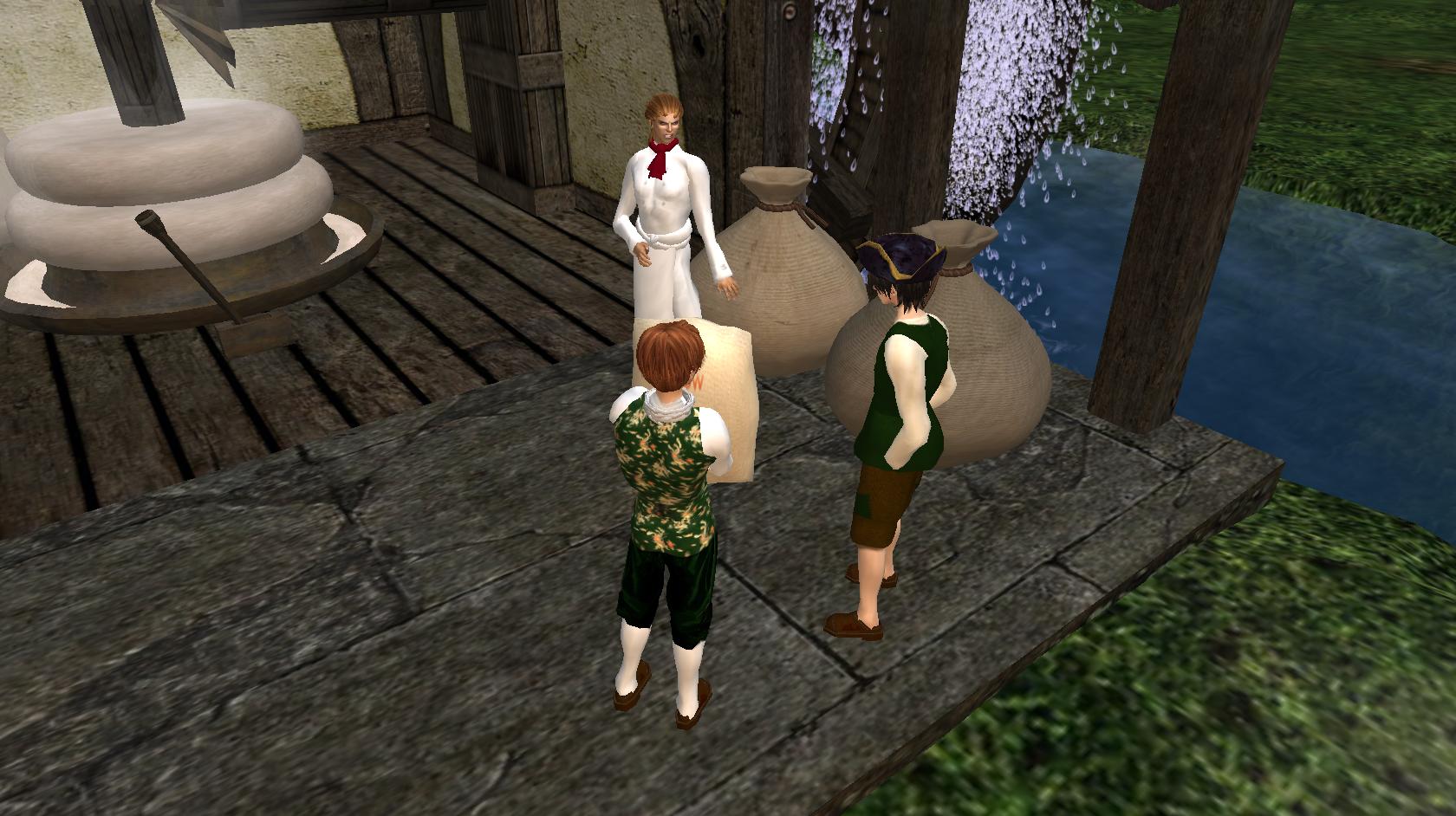 The miller accuses the boys of stealing
The miller accuses the boys of stealing 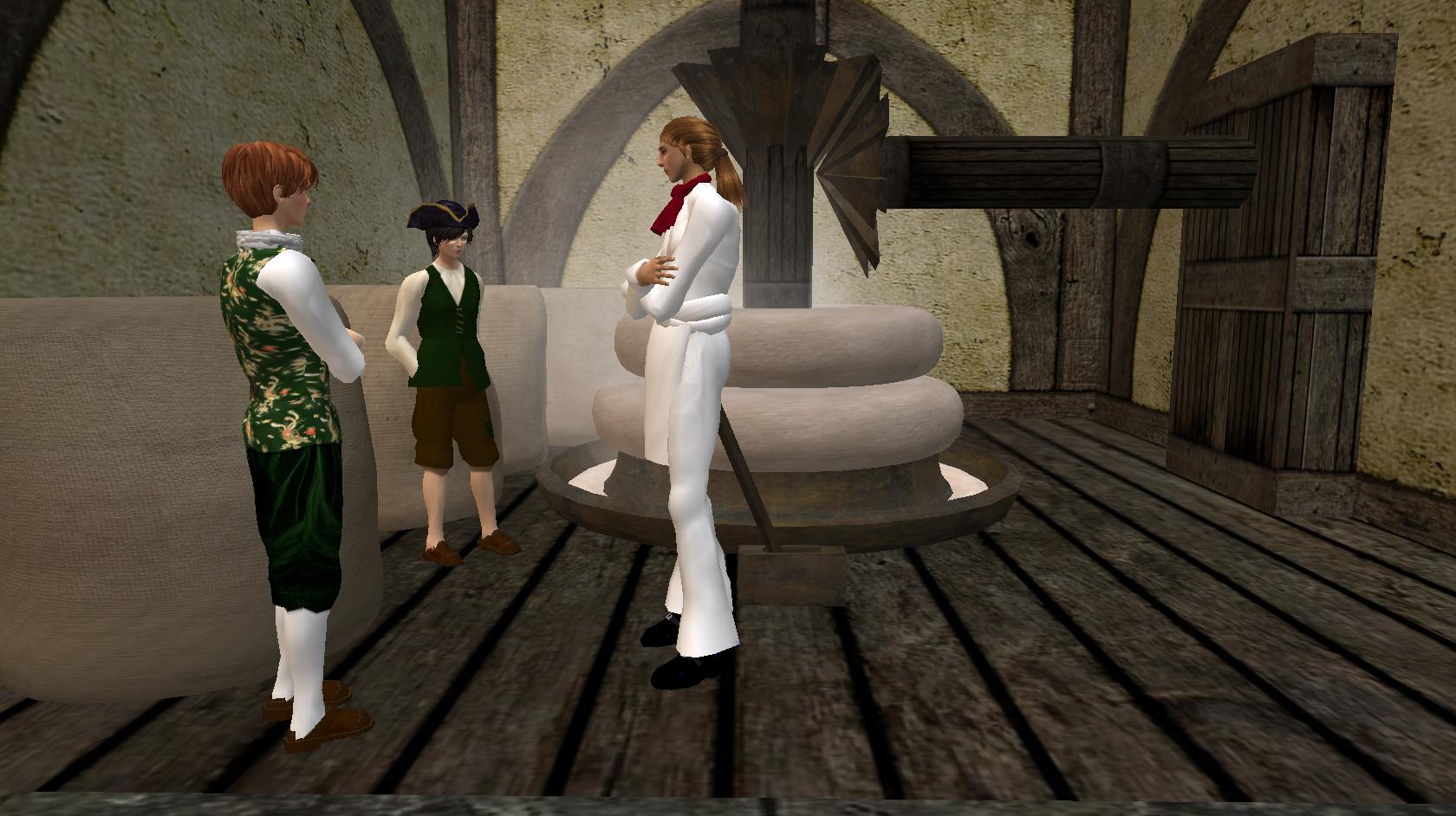 The miller listened attentively to the boys and notes their accents
The miller listened attentively to the boys and notes their accents 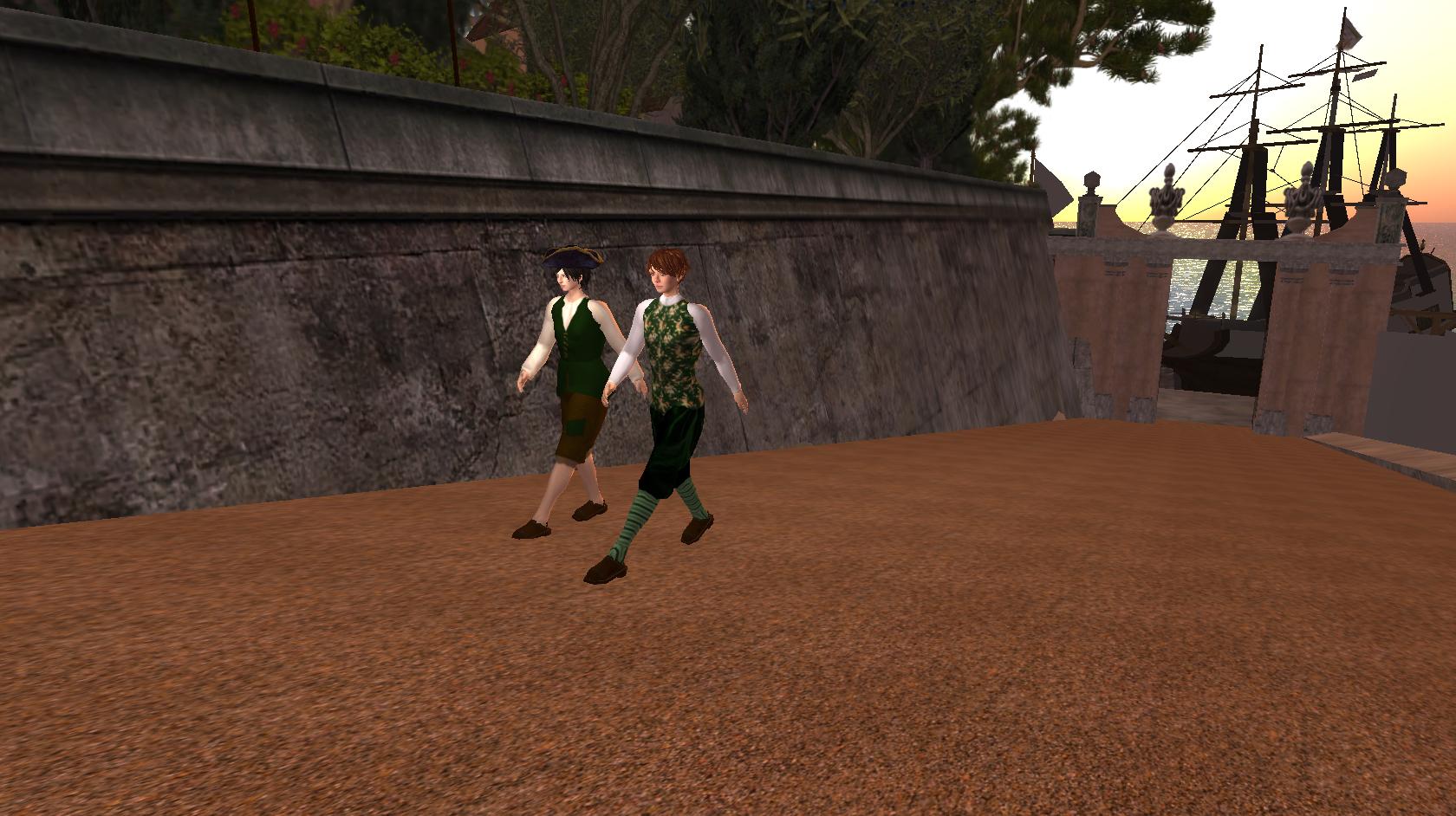 Rico and Fiorino start to walk from the port to the hilltop villa
Rico and Fiorino start to walk from the port to the hilltop villa 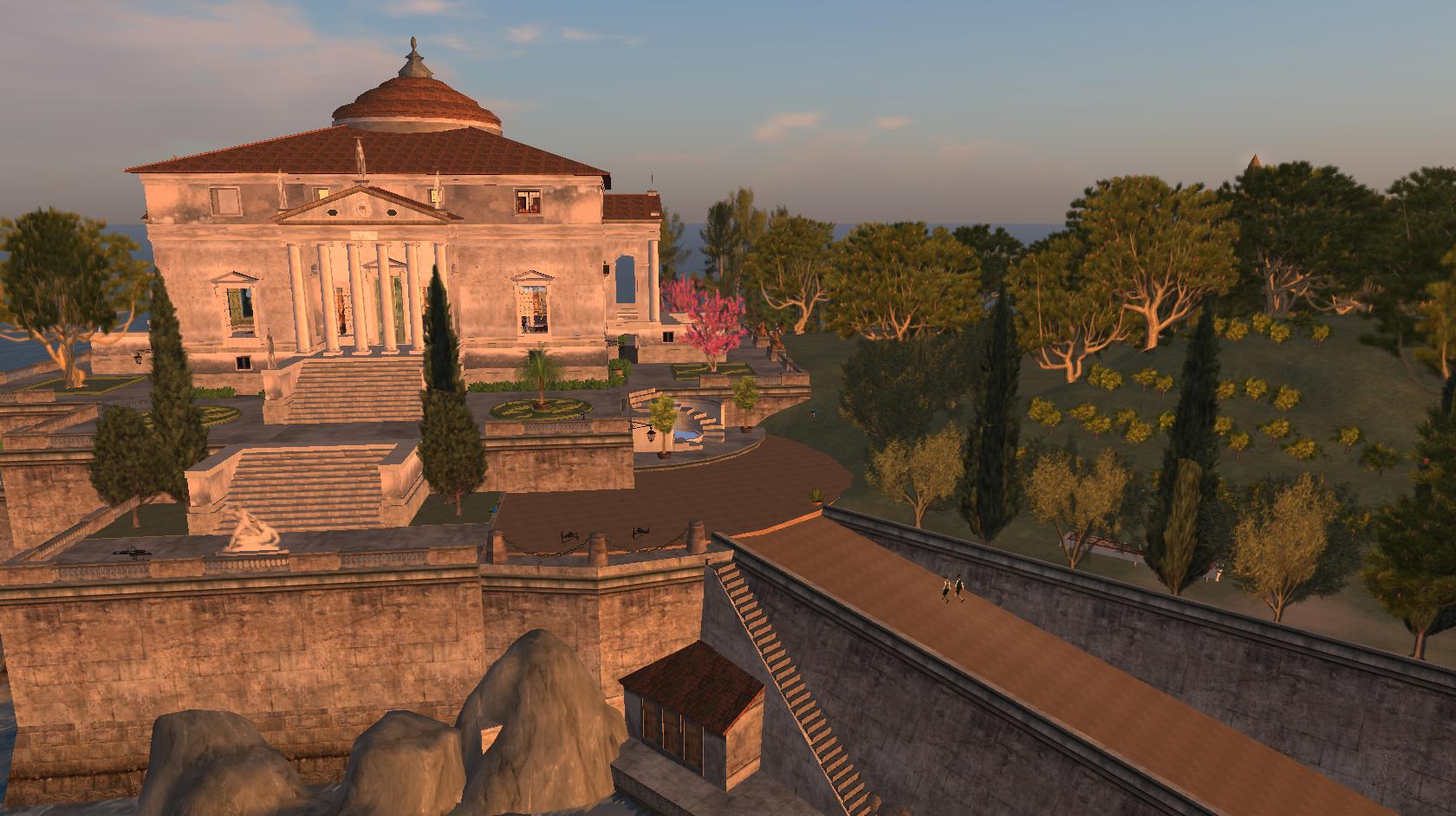 Fiorino and Rico climb the hill from the port to Villa Vesuviana
Fiorino and Rico climb the hill from the port to Villa Vesuviana 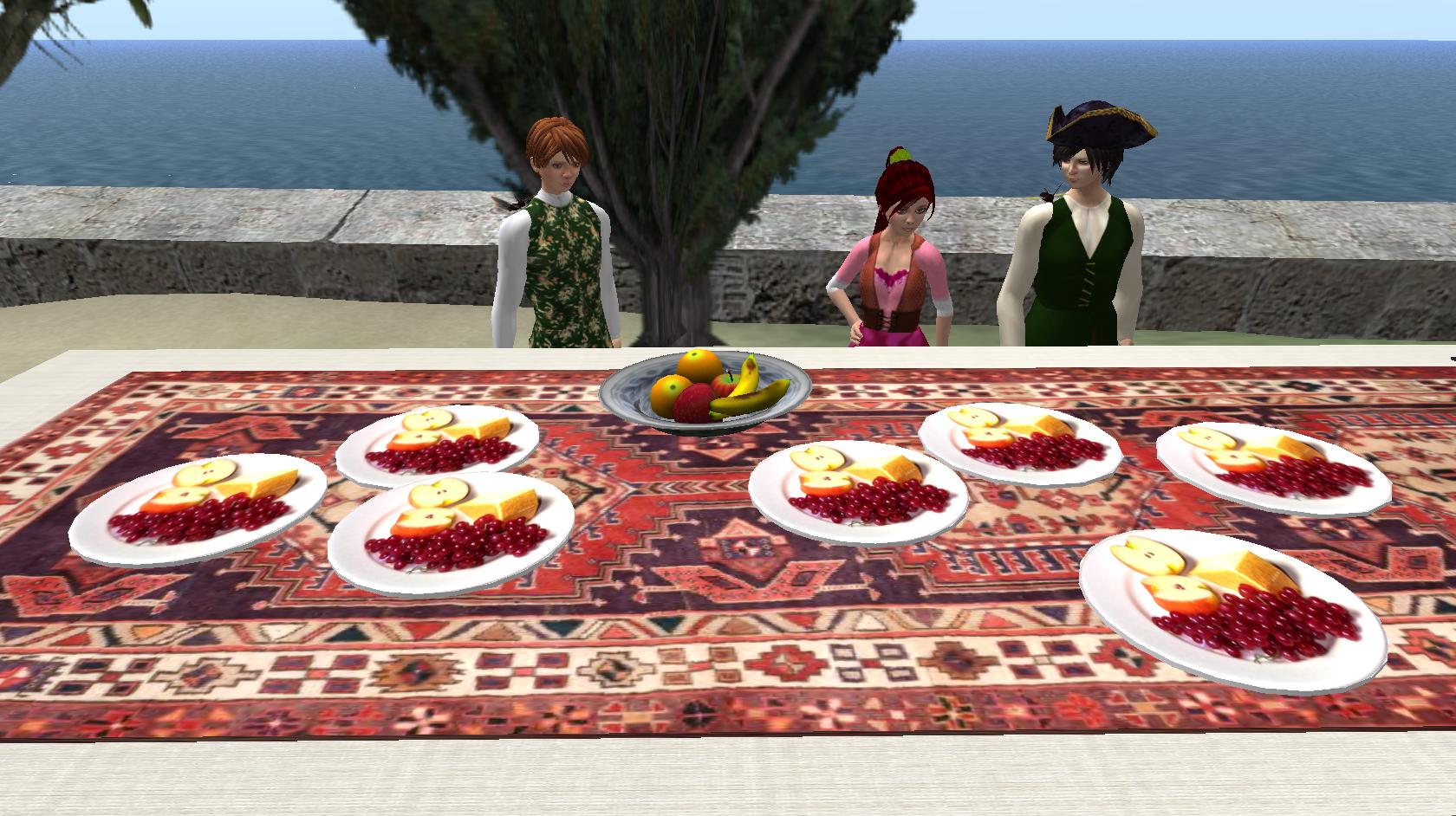 Fiorino, Marina and Rico approach the breakfast table
Fiorino, Marina and Rico approach the breakfast table 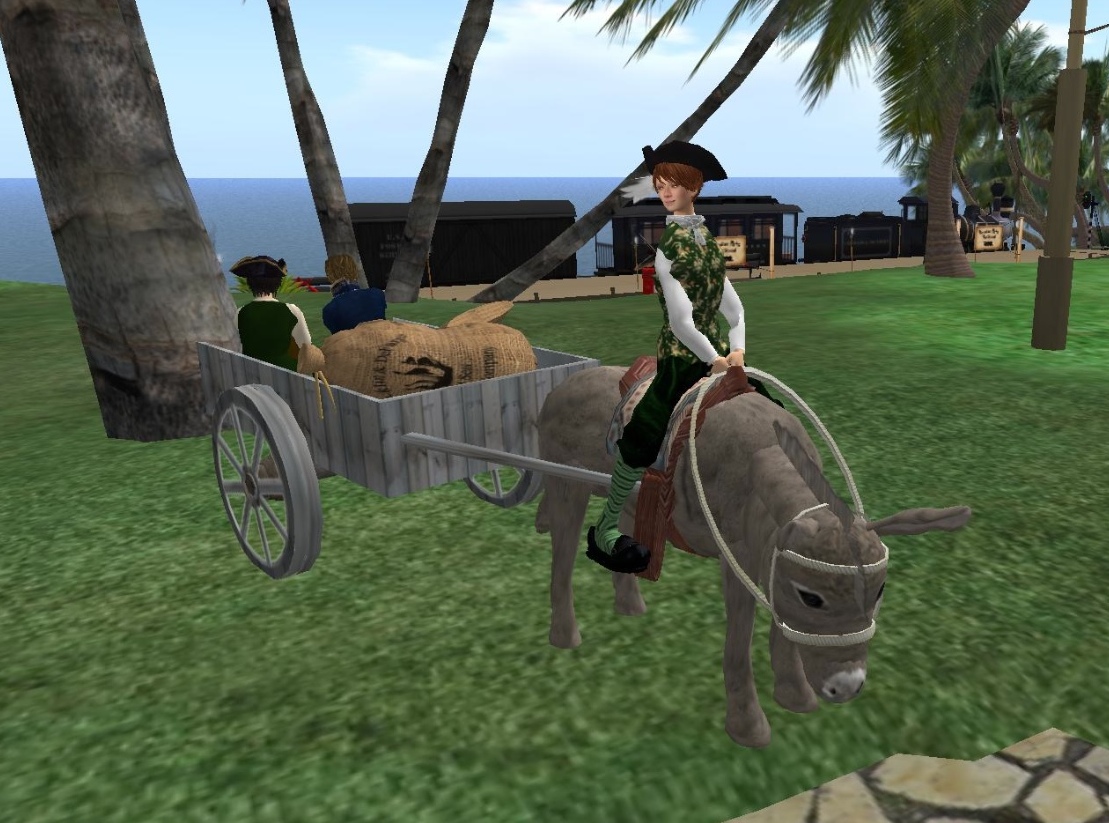 Nella lets Fiorino and friends bring the supplies to the Village of Melioria
Nella lets Fiorino and friends bring the supplies to the Village of Melioria 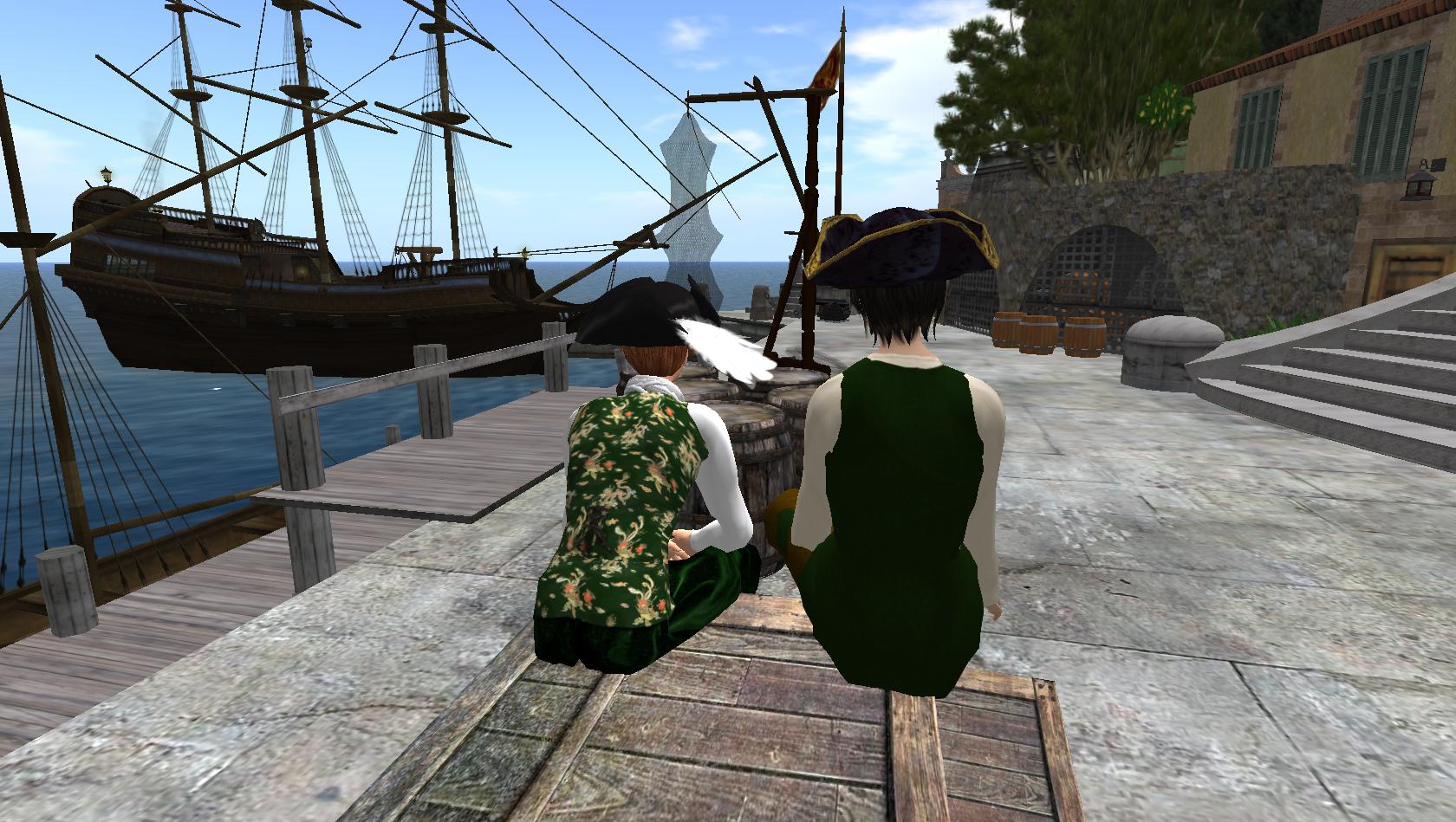 Fiorino and Rico watch the dockworkers unload the ship's cargo
Fiorino and Rico watch the dockworkers unload the ship's cargo 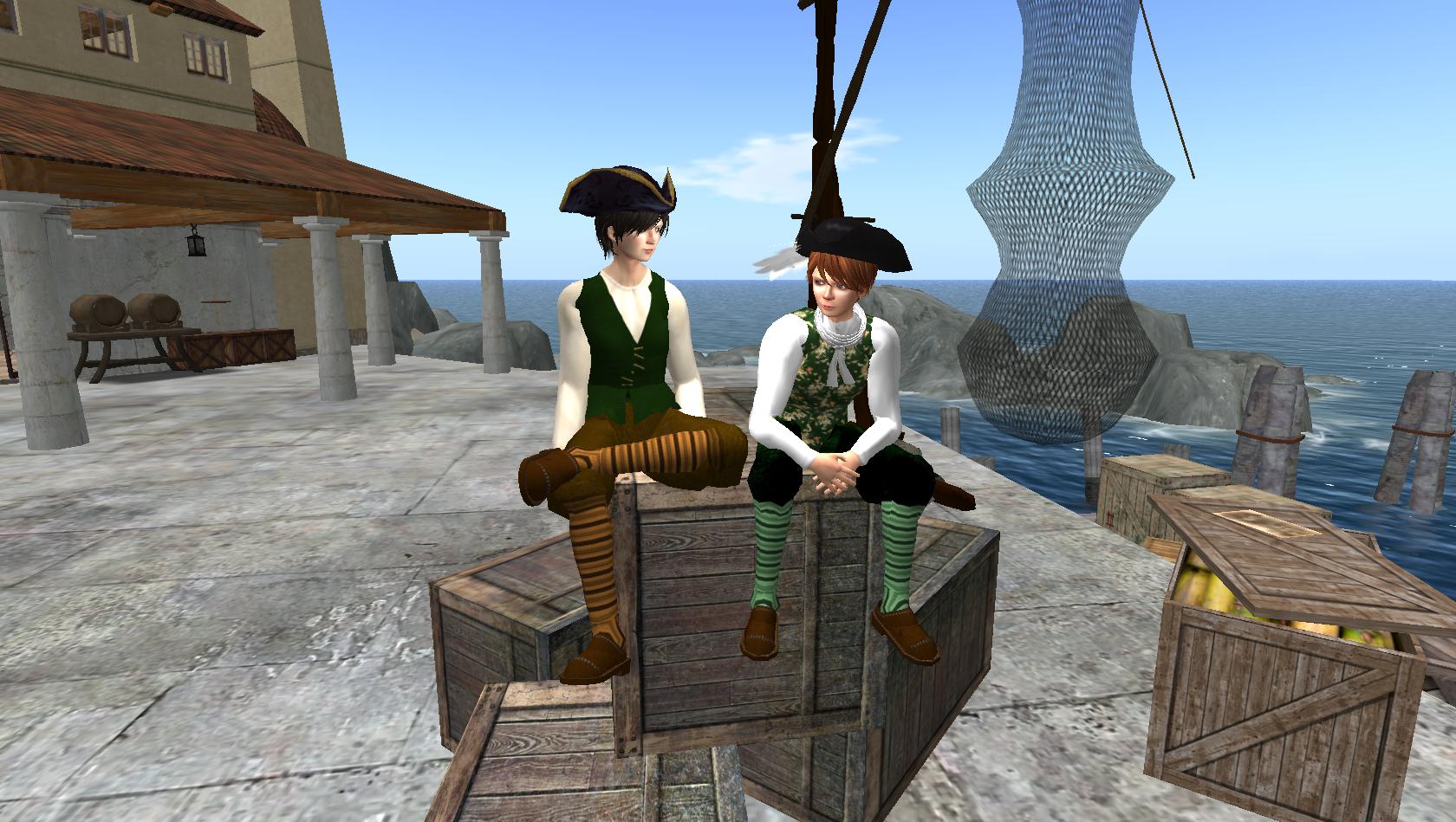 Fiorino listens to Rico explain his career plans
Fiorino listens to Rico explain his career plans 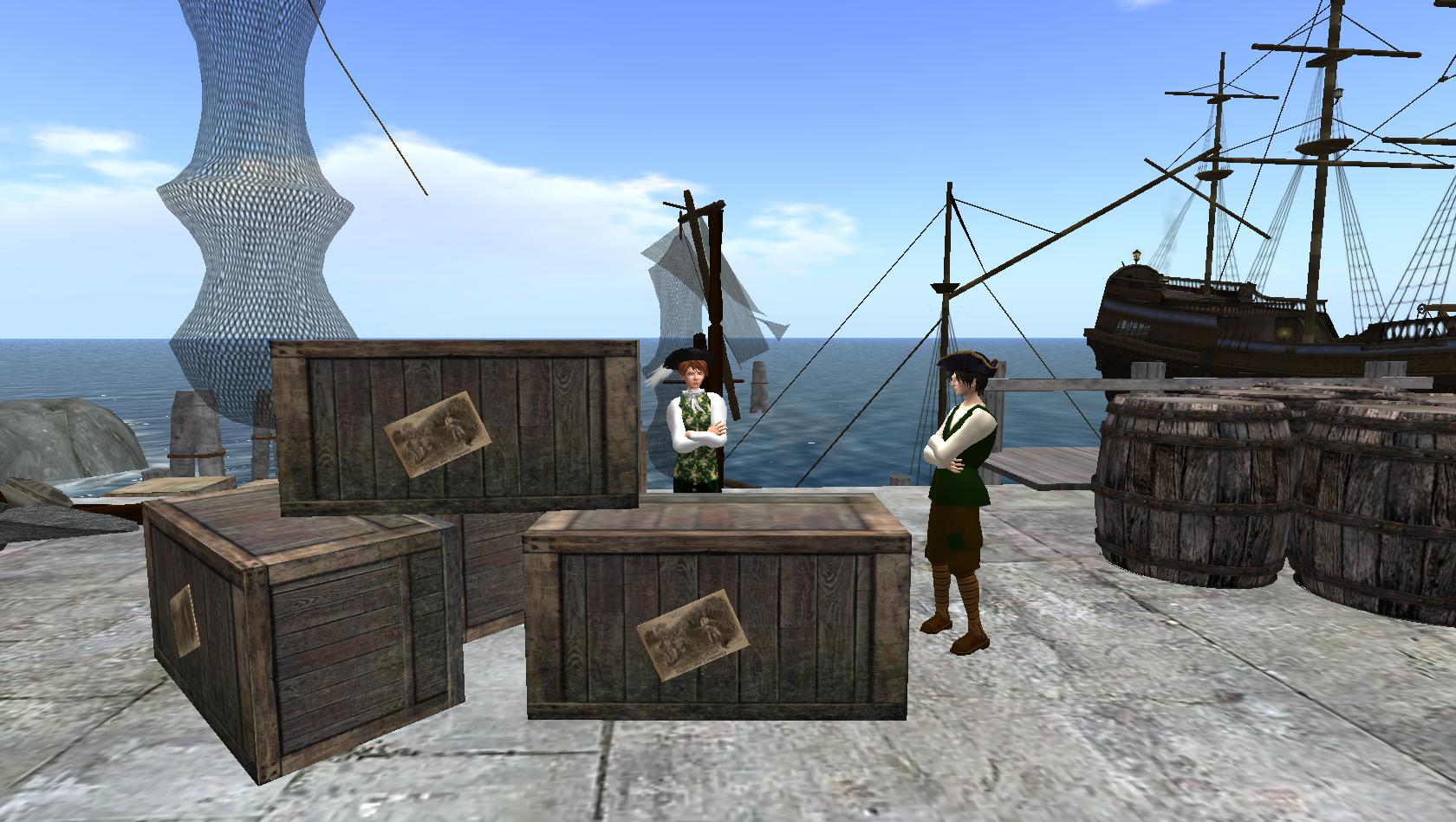 Rico and Fiorino inspect the crates from the cargo ship
Rico and Fiorino inspect the crates from the cargo ship 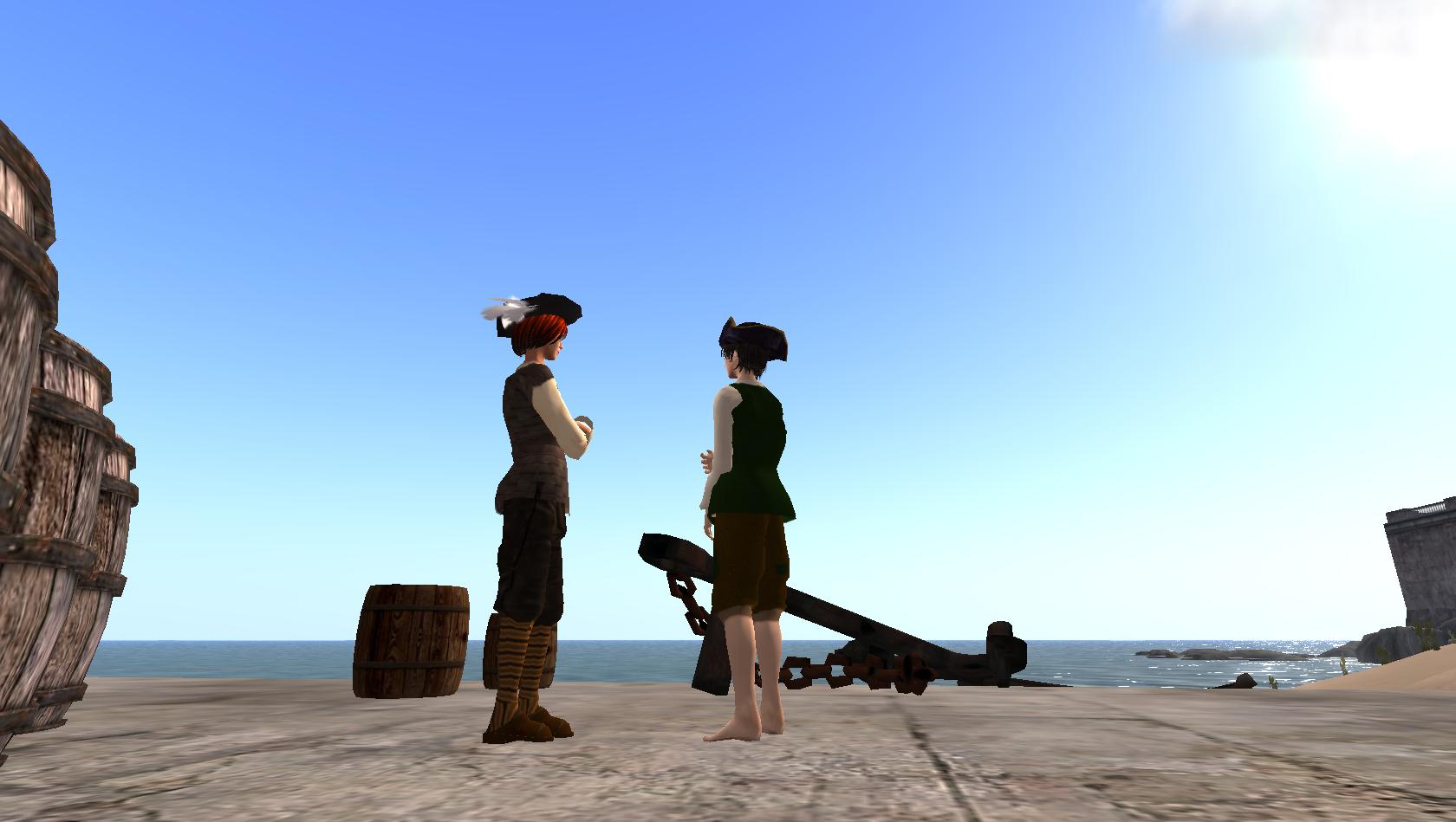
Somebody told me that the English say that men do not cry. Well, I am not yet a man and I am not at all English. I am Venetian. In Venezia I see that men express emotion. So I admit that for four days my tears flood my heart and soul more than the Adriatic floods our city of Venezia.
To see the destruction of the city brings fear and anguish. I do not think it possible that even an Englishman could hold back from crying, for all of Venezia is flooding and the water does not seem to want to go away.
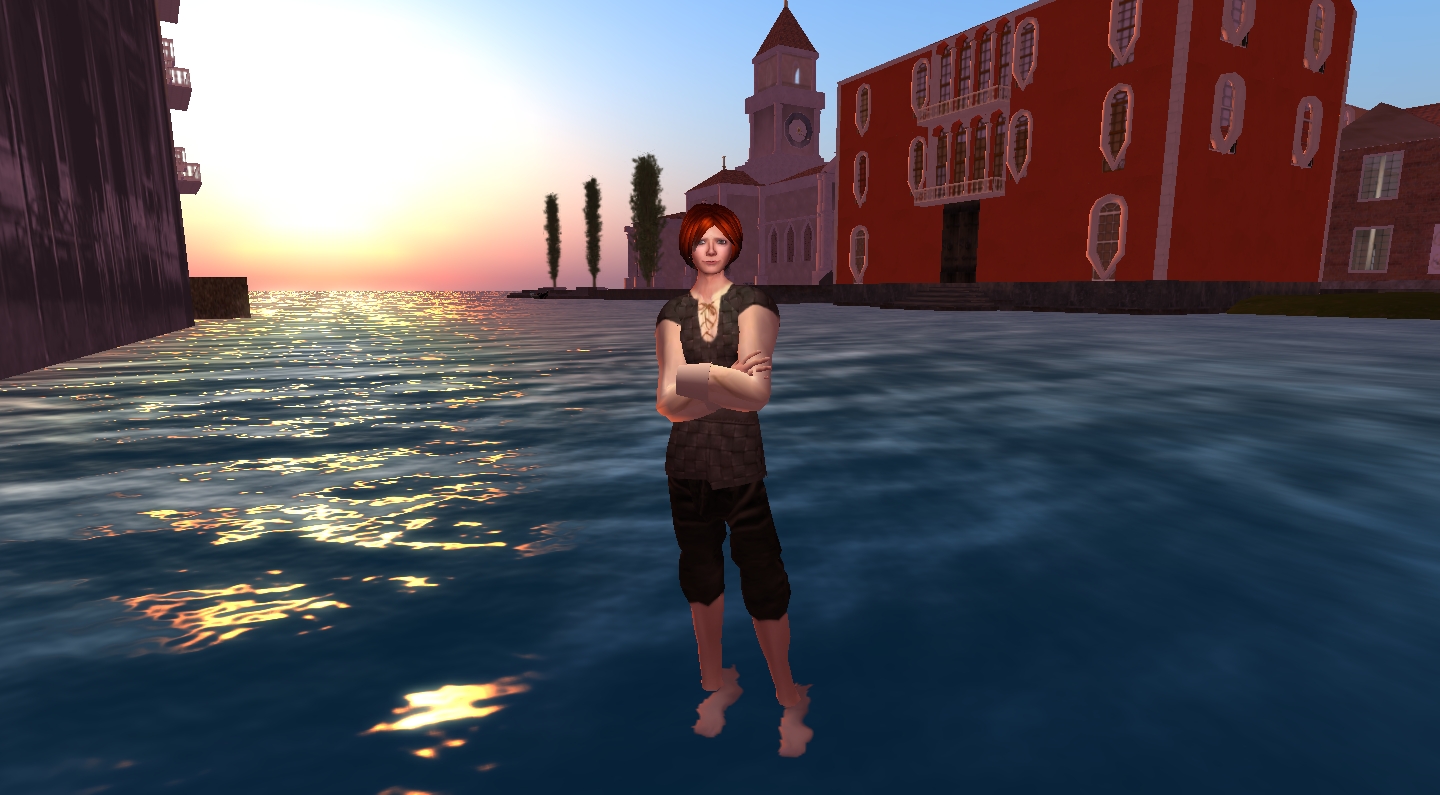
The boy Fiorino Pera walks through the flooded piazza
Then il Signor Principe di Melioria made the announcement that he would open his island for the Venetians. I did not think he meant the citizens and the workers, much less the orphans. But then my lord the Patriarch said that the Principe was making room for everyone who had not any other place to go. Before I could know what to think, I was on the ship and sailing to the island of Melioria.
On the ship I saw my dear friend, Signor Capo. Many times in Venezia I see him fixing houses early in the morning. I also meet his sons who are very funny. They are on the ship too, and they make me laugh so much that I forget that I am so sad. But then comes the big surprise: my friend Signor Capo is really a prince! He is the Principe di Melioria! When I find this out I feel so bad, for I have never given him bows that are deep enough for a Prince. But on the ship he tells me that he does not need deep bows: that we are friends and that he wants me to help make the other young people enjoy their time in the country, away from the danger. Signor Capo er I mean, Sua Altezza tells me that he will himself teach me to drive the horses that take the wagons around the island.
It is exciting, but as the sun comes down over the sea and we go slowly toward the island, I am again filled with very deep sadness. With the setting sun, which is the hour of the singing to the Madonna, I ask the Star of the Sea to bring us safely to port, and to ease the pain in our hearts.
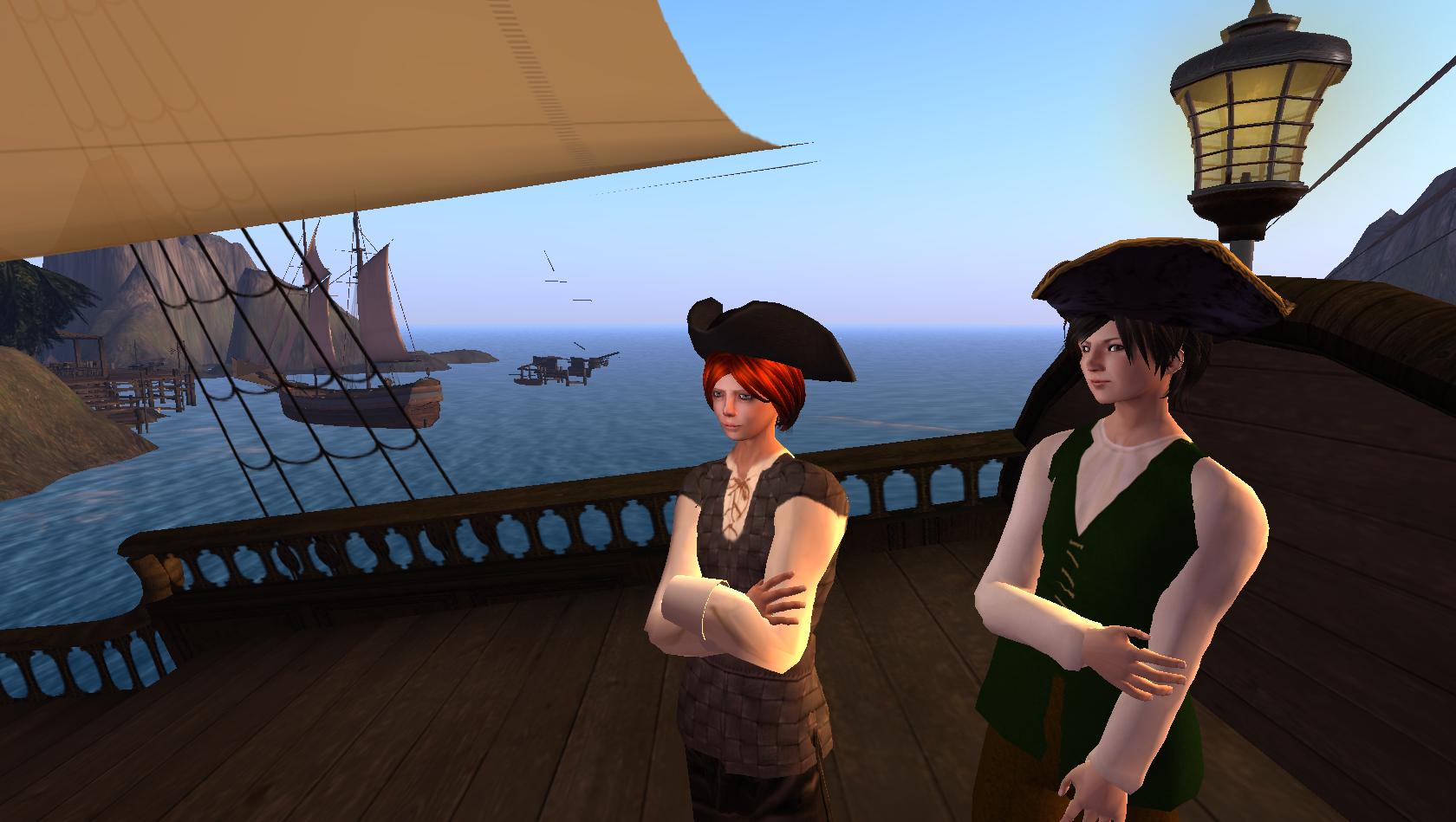
Fiorino Pera (L) and his friend Rico Millefiori (R) talk quietly during the sea passage
Communication to the Faithful following invasion of the convent in Dorsoduro and the murder of Suor Maria Sofia
By Federico Maria Giovanelli, 2010-06-22
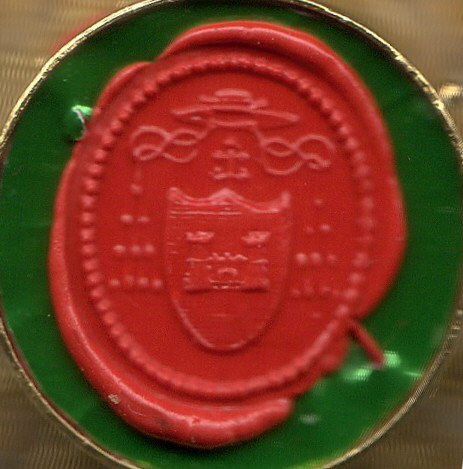
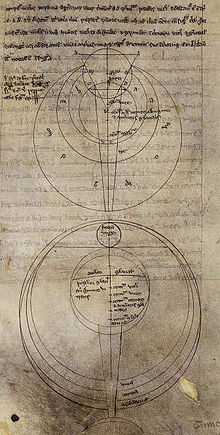
Bacon indicates some debt to Alhazen and Ibn-Sahl. It appears that such lenses may have been in use for centuries already, and it is only the difficulty in crafting them and the associated cost that keeps them from being a part of every student's basic equipment.
~Eleas LeRoux
It was my initial suspicion that this person might have drowned, but the good doctor pointed to discoloration of the body unnatural in either salt or fresh water drowning and to other signs that may indicate foul play.
Discoloration was present across the entire skin and thus cannot be attributed to makeup or a topical treatment.
The blood, too, was discolored, presented as a odd pink. This is not due to a contamination of the blood with water as a result of drowning, as some unfamiliar with the writings of Galen, Vesalius, and of the brilliant Dr. William Harvey, physician to both King James and King Charles I of England, might suggest. Instead, it points to an imbalance in the body prior to drowning, one that would likely prove fatal.
To test this hypothesis, after the good doctor Pekel sectioned the stomach and bowel with great precision, I removed a sample of the contents for further testing. It was clear to him from examination of the lining of the stomach that this was indeed a poisoning. He could narrow down the type of poison to a very short list.
The initial test to precisely identify the poison at work was simply to float the sample of the excrement in a bucket of water and carefully stir it until its elements came apart each from the other, the heaviest to fall to the bottom and the lightest to float to the top. Each group was then removed, strained through a cloth to remove water, and visually inspected. There was no question regarding the presence of arsenicum, yellow orpiment, among the heaviest precipitants. This is a metallic element, derivative of iron, thus weighty.
Arsenic may be an ingredient in some ladies' makeup and is also prescribed occasionally in tiny doses for some complaints, though I do not personally believe it is of much therapeutic value. The amount present, however, was extraordinary and could not have been incidentally introduced or prescribed without malice. It is a lethal dose, indeed it is a fatal dose several times over. It is as the doctor suspected, an incident that can only be described as wilful murder by poison.
God is my witness that I have acted in good faith here and spared no pains to uncover the facts. The deceased woman is far beyond any salvation offered by the medical arts. The application of science may, though, play a role in bringing the facts to light and a killer to justice.
